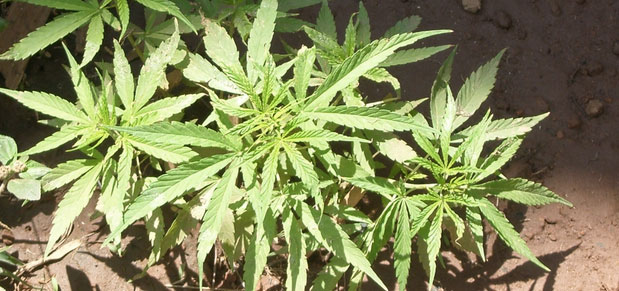Delay likely for medical marijuana's implementation
- December 31, 2014
- / Dara Kam, News Service of Florida
- / government

TALLAHASSEE — Lawmakers will have to sign off on a new rule to kick-start the state's nascent medical marijuana industry, meaning another likely delay in the law that was supposed to take full effect Thursday.
Office of Compassionate Use Director Patricia Nelson, who took over the state Department of Health post earlier this month, said Tuesday in Orlando that the rule would require the Legislature's blessing because costs associated with the new law are growing.
To be eligible for one of five state licenses to grow, process and distribute strains of non-euphoric marijuana, nurseries will have to make significant investments in "high-ticket" items such as analytical equipment, expert consultants, security operations and procuring the $5 million performance bonds required in the law, Nelson said.
Nelson told nursery owners, investors and lobbyists gathered at an Orlando meeting that she needed estimates from them to calculate the anticipated impact of the rule.
Florida law requires the Legislature to ratify rules that cost in excess of $1 million over five years. Nelson said she anticipates that the combined costs for businesses to operate the cannabis industry and for the state to regulate it would exceed $1 million over five years, triggering ratification.
"We have to have that before these rules will be effective. That requires an actual bill. It's not something that can be done by committee. That bill has to be passed by both chambers and then signed by the governor," Nelson said.
Nelson did not say when proposed rule language would be released but said that "it won't be long" because she wanted to have the rule ready to be implemented by the time the legislative session begins March 3.
"I assume 100 percent that it's going to be required because of the costs that are going to be associated with these rules,'' she said. "If we can't finish this by the time the Legislature gets in town, then we're pushing it back a whole 'nother year."
Under the law passed by the Legislature and signed by Gov. Rick Scott, doctors on Jan. 1 were supposed to begin ordering strains of cannabis that are low in euphoria-inducing tetrahydrocannabinol, or THC, and high in cannabadiol, or CBD.
That strain can be prescribed for patients who suffer from severe spasms or cancer.
But, siding with a group of nurseries and other businesses that launched a legal challenge, an administrative law judge in November struck down the health department's first stab at a regulatory structure, prompting Tuesday's workshop, the fourth public meeting on the issue since the law was passed.
Administrative Law Judge W. David Watkins agreed with Miami-based Costa Farms and others that objected to the Department of Health's proposed use of a lottery to pick the licensees.
Watkins also rejected a portion of the proposal that limited applicants to dispensing the substance, usually delivered in a paste or oil form, from the same location where it is grown and processed instead of allowing dispensing organizations to distribute the product from separate retail locations.
Nursery operator Anthony Ardizzone on Tuesday complained about Nelson's decision to hold another workshop and her failure to provide a draft rule although Watkins laid out the parameters for the regulation in his 71-page order last month.
"It seems like we listen to the same thing over and over again and accomplish not much of anything. I really would like to get this done … but it just seems like we can't get there," Ardizzone said.
But Nelson ordered the workshop "to address problems that still exist," she said.
"If we had come to you with a draft and said here are our rules, how would that have looked at that workshop?" Nelson said.
"I think it would have given us something to talk about," Ardizzone replied.
State Rep. Matt Gaetz, a Fort Walton Beach Republican who attended Tuesday's meeting and who was instrumental in getting the legislation passed during the 2014 session, said he was unconvinced that the rule would require legislative approval.
Even so, ratification may not create a substantial delay, Gaetz said. Because Florida's low-THC law is unlike any other state's medical marijuana laws, health officials don't have a template to borrow when crafting the rule.
"We have to create a uniquely Floridian solution. And we'll get there," Gaetz said. "I put a Jan. 1 deadline into the bill because I'm sensitive to the desperation of vulnerable people who need access to cannabis. But these are complex issues and at times it's better to get it right then to just get it done for the sake of getting it done."
 CivicCon launches with a look at good growth in cities
CivicCon launches with a look at good growth in cities
 Building stronger brains one baby, one parent at a time
Building stronger brains one baby, one parent at a time
 SCI debuts commercial on Early Learning City
SCI debuts commercial on Early Learning City
 Entrecon: World class speakers and an opportunity to sharpen skills
Entrecon: World class speakers and an opportunity to sharpen skills
 PYP Quality of Life survey 2017
PYP Quality of Life survey 2017
 EntreCon Pensacola 2016: A look back
EntreCon Pensacola 2016: A look back
 Leadership tip: getting better employee takeaways
Leadership tip: getting better employee takeaways
 Leadership tip: be interested instead of interesting
Leadership tip: be interested instead of interesting
 Leadership tip: delivering difficult messages
Leadership tip: delivering difficult messages
 Brain Bags boost Arc, Early Childhood Court programs
Brain Bags boost Arc, Early Childhood Court programs